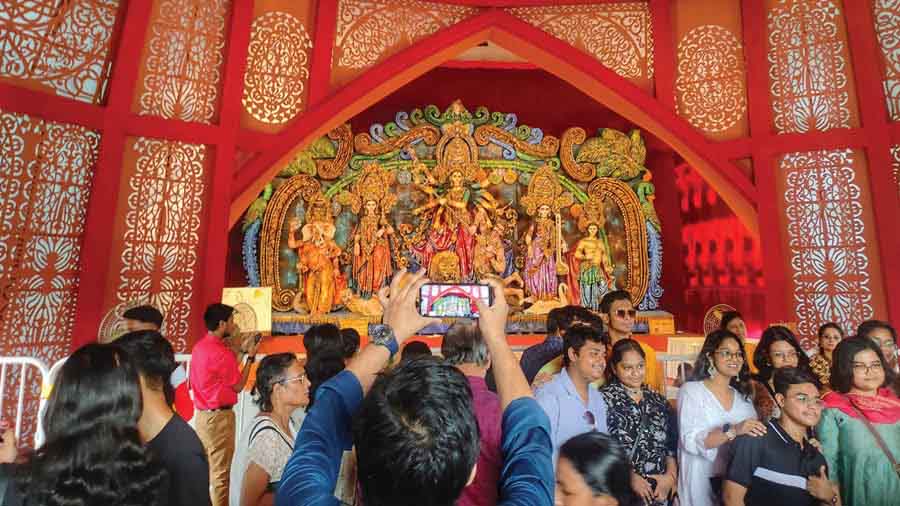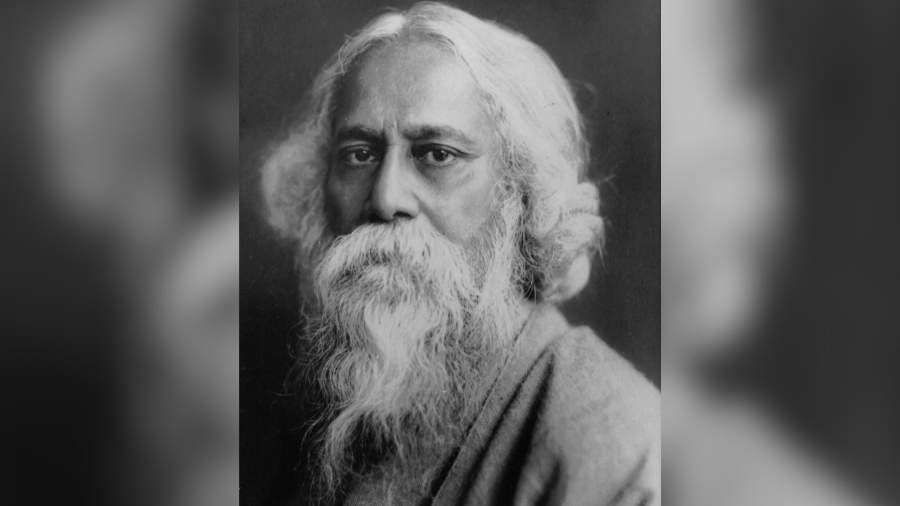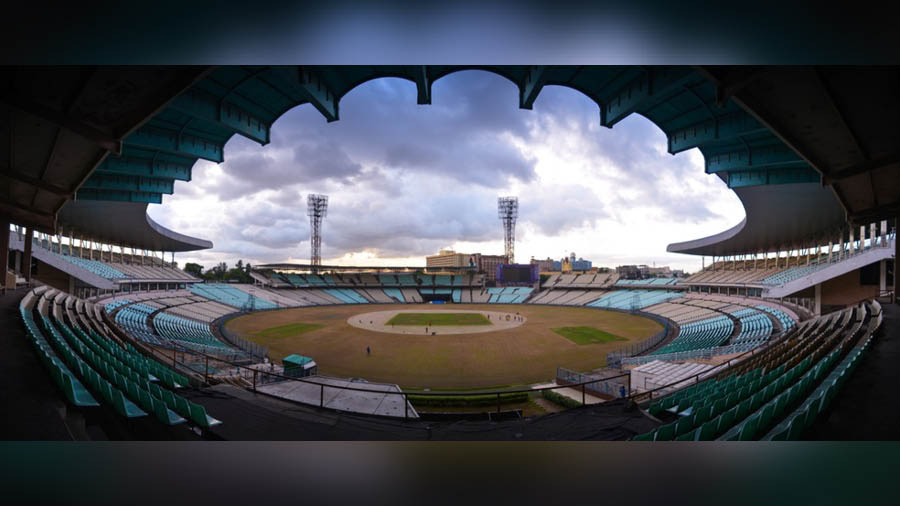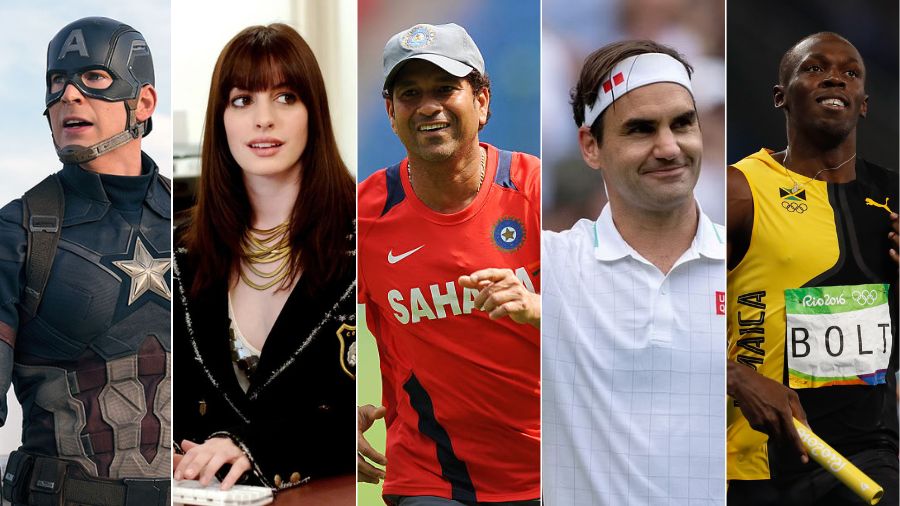I was not in Kolkata for Mahalaya this year. But Birendra Krishna Bhadra still rang out Ashwiner Sharodo Praate first thing in the morning. The only difference was that it did not ring out from the speakers strapped to a neighbourhood pandal. But I could smell the advent of Puja like most people who have lived and grown up in Kolkata. The air changes, thanks to the flowers, sandalwood, incense, camphor and much more. The people change too. The rush of traffic in Gariahat, New Market and Hatibagan. The long queues outside the restaurants on Park Street. The pandal-hopping with midnight Metros. And who can forget the panjabi-sari love stories that spark on Ashtami mornings.
How can you understand exactly what I am talking about? How does the mind know and the heart wistfully ache? The answer, my friend, is not blowing in the wind (yes, that is a Bob Dylan reference). It can be found in Social Identity.
Social Identity: From Ashtami Anjali to Team Jerseys
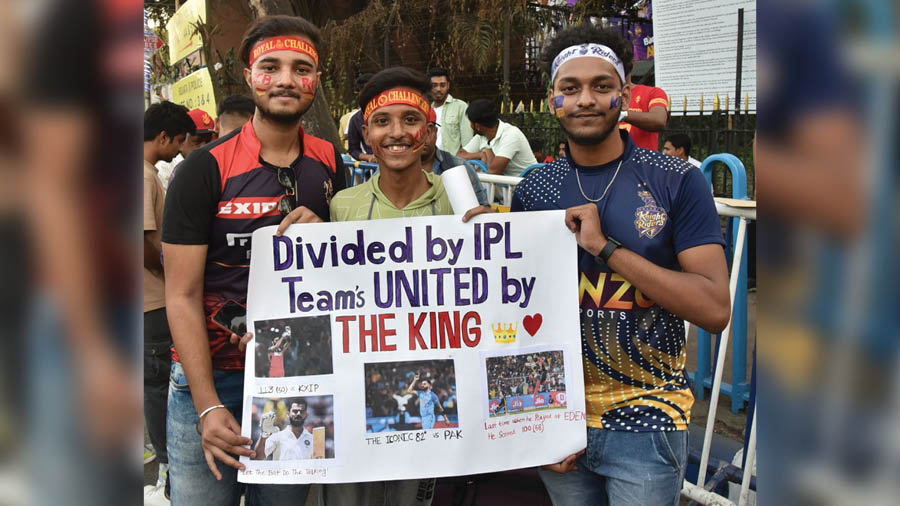
A distinctive badge, a team jersey are some of the things you subscribe to as a supporter of the team Suvendu Das
Which team do you support? The team will probably have the following: a) a distinctive badge; b) a narrative and a history; and c) a jersey that is unique to the team. All these things together are things you as a supporter of that team subscribe to. This is what makes it your team. These are all elements of the social identity of that team. A similar thing happens during Puja. It is part of the social fabric of Kolkata and a Bengali. Much like Ganesh Chaturthi is a part of Maharashtra, Onam is a part of Kerala and Christmas is a part of the Vatican City.
Social identity refers to the process by which people engage in a self-categorisation in relation to their social memberships. These memberships are an important source of pride and self-esteem. We keep these memberships because we feel good about ourselves by stating them. We feel like we belong. As the supporter of the team, you feel like you win and lose together with all the other supporters of that team. It’s why if you’re from Kolkata you can feel Puja to be a part of you (all the good things, and even all the bad traffic). It’s why most Bengalis have a near borderline possessiveness about Tagore or Ray.
Our social identity is unique to us. We are first placed within a social category. Let’s take myself, I was born to Bengali parents in Kolkata. That’s the category I was placed in. Then we look at which elements do we have a social identification with. I identify with Kolkata and Puja. Someone else might not. So we start feeling the need to choose. This is where it gets interesting. We choose based on what other people assign value to. What is popular. what is trendy, etc. For me, during the time I grew up, every Puja was spent in a pandal, Puja was cool, Puja was popular. For others, something else might have been.
Individuals do not look at social identification as detached observers. In fact, we think about it quite transactionally with our own sense of who we are and how we relate to others. Now let’s think about why people support a certain team in sports. Usually it’s because that team is cool, socially prized and winning. Or because you were raised in the culture of that team, and the passion that comes from being a local supporter is the coolest thing of all.
Social Identity & Social Capital
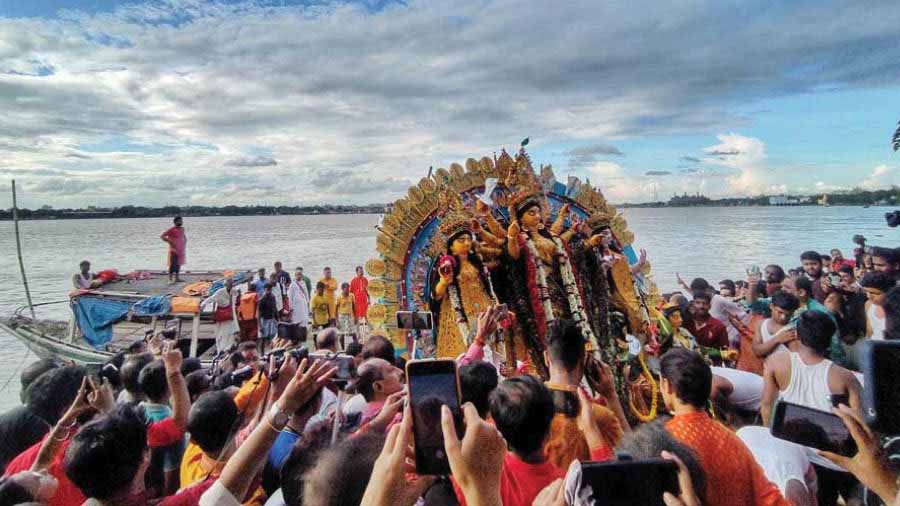
You experience celebrations and customs with everyone around you, and that is social identity
Sadly, social capital does not translate to bank balance. Social capital is the abstract and potential ability to obtain resources due to the membership that one has to certain social identities. For example, if I speak Hindi in Delhi (higher social capital), I am more likely to get things done quicker than if I speak Hindi in Chennai (lower social capital). Social capital is what draws us to choose a certain social identity over another. Think of it like venture capitalist funding chased by startups. You want to get the most bang for your buck.
This is where the pride part comes in.
That is why in the next few days, as Sashthi blends into Saptami and the Hooghly ghats fill up with kolabou snan, people will be identifying with what they have been waiting for since last year. For a few days, for most people, there will be moments where the harsher realities of life are swept away by the mantras of pushpanjali and sandhi puja on Ashtami. On Navami, Kolkata will begin to say: ‘It all went by so fast.’ And on Dashami, everyone will pray to Ma Durga one last time, as chants of ‘Aschhe bochhor abaar hobe’ resonate round the city. You experience it with everyone around you; and that is social identity.
Dr Sahen Gupta is a Kolkata-born, India- and UK-based psychologist who divides his time between mental health support and high-performance coaching. As the founder of Discovery Sport & Performance Lab, he works not only with Olympians and other top-level sportspersons, but also with CEOs and other professionals striving for excellence. Dr Gupta’s mission is to simplify complexities of the mind into actionable and simple ‘doables’ that allow individuals to be mentally fit.
